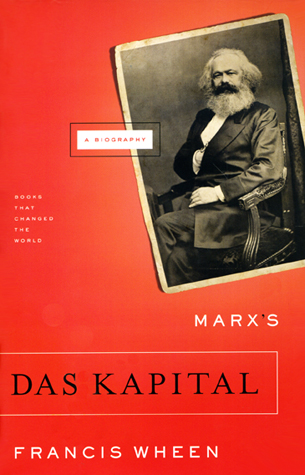
Nouriel Roubini, the economist who correctly predicted years in advance the collapse of the financial market and was roundly mocked for it by Wall Street shills, considers Marx’s prediction that capitalism will collapse on itself:
Karl Marx, it seems, was partly right in arguing that globalization, financial intermediation run amok, and redistribution of income and wealth from labor to capital could lead capitalism to self-destruct (though his view that socialism would be better has proved wrong). Firms are cutting jobs because there is not enough final demand. But cutting jobs reduces labor income, increases inequality, and reduces final demand.
I have just read Francis Wheen’s Das Kapital: A Biography (excerpt here), which details the decades long development of Marx’s life’s work (most especially its nuanced literary dimension which is ignored by hardline ideologues on both ends of the political spectrum), as well as its demonic afterlife as the Bible of Marxist-Leninism. It’s difficult to ignore while reading the book that Marx’s critique of capitalism can still be regarded as prophetic. His account of how capital must ultimately be hoarded by a plutocratic elite remains relevant.
Frye consistently cited Marx as one of those nineteenth century thinkers who upended the traditional mythological conception of social authority. A typical example:
[I]f we look at the thinkers who have permanently changed the shape of human thought, such as Darwin, Marx, Freud, or Einstein, we find, naturally, that their books are complex and difficult and require years of study. Yet the central themes of their work are massive simplicity. Evolution, class struggle, the subconscious mind, are all things that have been staring mankind in the face for centuries. It’s the ability to see what’s straight in front of his nose that marks the thinker of first-rate importance. (CW 11, 271-2)